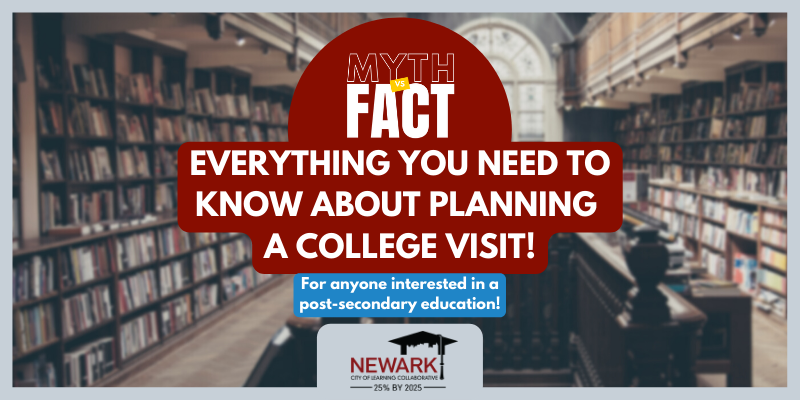
by Nasir Ismail | Mar 21, 2022 | Blog, Myth vs. Fact, Resources
Can I Go on A College Visit?
Whether you’ve begun applying to school or not, planning a college visit is the best way to ensure you end up in the right place. Imagine spending a few years at a school that might lack convenience, practicality, or even comfort. That’s why visiting is an essential part of the college selection process.
Going to colleges campuses will help more than anything in finding the right fit for you. You can get a live feel for the atmosphere, culture, food, and resources available to you, to ensure you match with your favorite school. For a step-by-step guide on how to schedule a college visit, continue reading below!
What if the school is too far to visit?
Your location should never be a limiting factor! If you cannot physically make it to a college visit but still want an idea of what it’s like, you can always attend a Virtual Tour! Rising in popularity, these tours offer virtual information and Q&A sessions for students to get familiar with an institution. Organizations like YouVisit, The Princeton Review, and CampusTours provide several virtual offerings including video tours, interactive maps, and more (click on the links to check it out)!
If you are seriously considering attending a school, however, you should definitely try to visit its campus prior to applying or committing to it. Although, don’t be mistaken. Virtual tours are not a last resort, they are a revolutionary, convenient resource! If a virtual tour works better for your schedule than an in-person tour for whatever reason, make sure to attend it! You’ll learn something new either way.
What’s there to do on a college visit?
You can do a wide variety of activities during a college visit, including touring the campus, visiting an admissions counselor, professor, coach, or any faculty member, or attending a lecture or seminar.
Coordinate with a campus admissions counselor to ensure you get the most out of your visit. Whether you want to learn about sports, extracurriculars and clubs, academics, or anything else, ask a counselor and they will steer you in the right direction.
How to Visit The Schools of Your Choice:
Step 1: Make a list.
When making a list of schools, ask yourself a few questions about the schools you want to apply to or visit.
What kind of institution do you want to attend?
- Decide which program of study you are interested in. Examples include a four-year Bachelor’s program, a two-year Associate’s program, or a technical degree from a trade school.
Do you plan to commute or live on campus?
- Determining this can help you hone in on places you can visit. Commuting will limit you to schools in your area, but does not require you to change your housing situation. Living on or near campus expands your options for college and can allow you to discover new areas.
Where do you want to attend college?
- Where in the world would you like to study? Where is possible for you to visit?
- Do you prefer a big city? Or a smaller college town?
- Do you want to live in a large community like a state school? Or would you prefer a small liberal arts college instead?
Step 2: Set up a Visit
To set up a visit with one of the schools on your list, contact their admissions office and schedule an appointment.
- Search Google or visit your preferred college’s website to find the admissions office’s phone number or contact information.
- Call and ask to schedule a college visit, and an admissions counselor will likely guide you in the right direction. They are known to be friendly and are willing to discuss any questions you may have.
- Some colleges have online registration forms for college visits on their websites, but a phone call might allow you to better communicate any preliminary questions.
- Find a few dates that can work for you. If you have a break, if you are free after school or work, or if you are going on a vacation to somewhere nearby, then use those dates/times.
Step 3: Confirm your appointment and plan your visit
- Ensure you know how to get there. Make sure you know which day and what time you have scheduled.
- Get familiar with a map of campus and save important addresses, such as the visitor’s centers, student centers, admissions offices, and any landmark or perhaps restaurant you’d like to see.
- If planning an overnight stay, make sure you pack accordingly. If going for a single-day visit, be sure to bring a backpack and either a computer or a pen and paper so you can take notes.
Step 4: Visit campus!
- Meet with your campus host, whether a faculty member, dean, student, or member of the admissions office, at your scheduled location. Come ready with notes and questions you have about the school.
- Be sure to arrive 15 minutes early to plan for any obstacles along the way. You may also be able to be compensated or reimbursed for travel expenses, flight costs, or other costs incurred during the visit, so make sure to inquire with your host about that!
- Make a list of everything that you like and dislike about the school you’re visiting. Take pictures and keep notes, because it’s very easy to forget details and specifics, especially when you are visiting multiple colleges.
Step 5: Compare it to your other options.
- After you visit a few schools, stack them up next to each other and see which one you like best!
- Consider how comfortable you feel in that environment; if you like the size, location, and culture; and if you can see yourself there for multiple years!
Post-secondary education is a long-term commitment, so it is always advisable to have a clear vision, path, and goals for college.
Visiting colleges can help you understand what you want to do and where you want to be so that you can succeed and reach your goals! Don’t be nervous! Be observant, relaxed, and try to have fun.
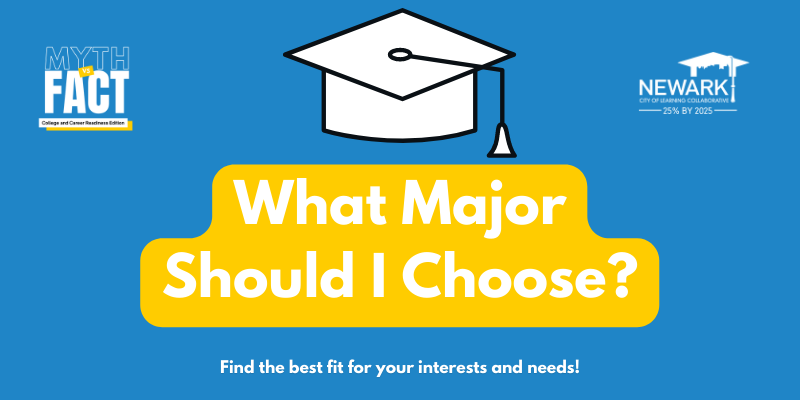
by Nasir Ismail | Mar 7, 2022 | Blog, Myth vs. Fact, Resources
What major should I choose?
Choosing the right major comes with lots of stress. While you want to make sure that you choose something secure that establishes the groundwork for your future career, you don’t want to choose something you don’t love. But many students remain unsure of their academic interests, so college can be a hard, introspective, and critical journey. To ease the pressures involved in choosing a field of study, you really have to know yourself and who you are. Hopefully, this guide helps!
Questions to ask yourself
What are my favorite pastimes? What do I want to do for work?
Depending on your favorite pastimes or hobbies, you can shine light on fields that really interest you. For example, if you love to play or record music after school, then maybe a program in Music Production skills might help satisfy your career goals. If you want to open up your own business one day, then you can study business. The thing is, for most careers, there is a specific program that will help you achieve the skills necessary to attain your dream position.
How long do you want to be a student?
Sometimes, things like familial constraints might deter you from being able to study for as long as you might want to. In other cases, maybe you know you don’t want to be in school for very long. Depending on how much time you want to spend investing into your future career, then you can narrow down the programs available to you. The most common programs are Bachelor’s Degree programs which universities design as four-year programs. Trade schools and technical education programs offer a variety of different skill-based programs that vary from a few months to two years. Community college also offers two-year associates degree programs to provide students eager to learn with skills necessary to succeed in professional environments.
Examples of Entry-level jobs attained with Bachelor’s Degree
Major: Math
Career: Actuary, Statistician
Major: Communication
Career: Public Relations, Editor, Content Strategist
Major: Economics
Career: Market Analyst, Research Analyst, Finance Consultant
Major: Human Resource Management
Career: Human Resource Manager
Major: Business
Career: Business Analyst, Business Development Representative
Major: Health Sciences
Career: Medical Technician, Health Specialist
Major: Engineering
Career: Industrial, Electrical, Civil Engineering
Major: Psychology
Career: Counselor, Psychologist
The average payout for these entry-level positions ranges from $55,000 to $85,000. The higher-end involves STEM and Business oriented studies.
Examples of careers attained with Two-Year Degrees (Community College and Trade Schools)
The following programs of study are also career paths, so there is no discrepancy between what your major is and what your career will be. Two year programs are more focused this way.
-Masonry
-Practical Nursing
-Carpentry
-Construction/Heavy Equipment Operating
-Mechanic
-Plumbing
-Electrician
There is real value in two-year degrees, credentials, and certificates! The average entry-level NJ Trade School Graduate earns $57,000 after they complete their two-year degree program. This is around the same amount as entry-level Bachelor’s Degree holders earn after four years of school! New Jersey has over 120 trade schools to choose from throughout the state, depending on your location and career preferences, so it shouldn’t be a hassle to find the right program to get you started.
What if I have no idea what I want to do for my career?
There are a few options if you have no idea what you want to do, but still would like to attend a post-secondary program.
Deciding Later
If you value the traditional college experience, then your best course of action is to leave your major undeclared. By choosing undeclared, you will gain access to career exploration opportunities and classes that help you figure out what you want to do.
It is extremely important that you go in undecided if you haven’t decided or fully committed to a career pathway, otherwise, you will spend extra time in school doing work that you probably will not enjoy. Going in undecided is the mature thing to do for someone who is unsure of their intended course of study. Leaving your major undeclared shows your eagerness to learn, self-reflection, and courage while demonstrating your ability to set realistic goals.
Liberal Arts
Degrees in Liberal Arts prepare students to deal with twenty-first-century challenges by practicing progressive solutions. The core outcomes of a liberal arts education include the ability to think critically and creatively, work collaboratively, communicate clearly, adapt to new technologies, and navigate today’s global economy. A skillset like this is not only desired by today’s top employers, but it also provides students with the ability to make creative solutions in meeting the demands of the modern world. Some liberal arts degrees include Sociology, Psychology, English, Communication, and History.
According to the Bureau of Labor Statistics, employers actually rank skills such as critical thinking and communication over technical skills when it comes to judging one’s career readiness! If you are unsure about your major, don’t stress, because your experience will still be valuable to employers. A recent report even found that over 80% of employers want all students to have a background in liberal arts and sciences!
Two-Year Programs
If you do not care about the traditional college experience, then a two-year associate’s or trade program for which you can also enter as undecided is your best bet. Generally, programs for undecided majors will be offered at community colleges and not trade schools, but at community college, transfers are regular and its relatively inexpensive cost will allow you to explore your options to really figure out what you want.
It is far better to enroll undecided than it is to study something you don’t like. The key to academic success is finding what is right and what works for nobody else but YOU!
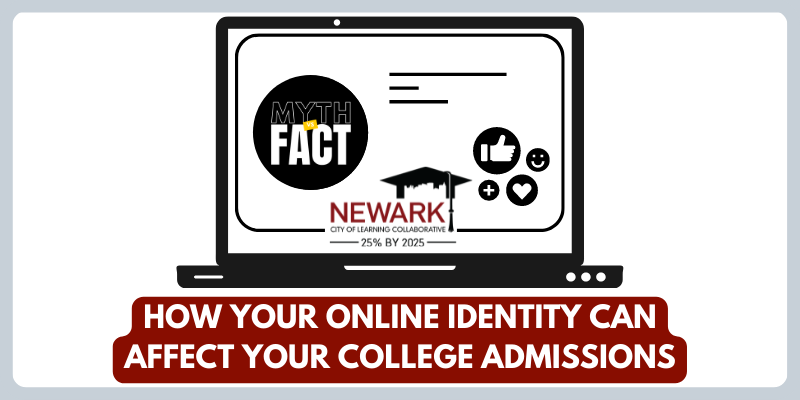
by Nasir Ismail | Mar 4, 2022 | Blog, Myth vs. Fact, Resources
What happens on the internet… stays on the internet.
Social networking accounts are digital identities, and every time an account creates a post, it essentially leaves its digital signature with it. A lot of people neglect this fact about social media and are irresponsible with the posts they publish, which has led to serious repercussions in many cases.
What if my account is private?
Even information from a private social media account can become public if someone takes a screenshot or recording of one of its posts and shares it publicly online. Having a private account can also restrict people from seeing beneficial information, like your portfolio. So always be mindful about what you post, regardless of your privacy preferences.
Who is checking, anyway?
Some colleges have admissions teams solely devoted to checking students’ social media pages. Everything and anything that you post can be traced back to you! The internet works in mysterious ways, but it is becoming easier to navigate every day. For example, even if you don’t have your name listed on your profiles, admissions counselors can utilize cross-referencing measures to verify you identity.
What can I do to avoid this?
It’s never too late to delete old posts that you think may come back to haunt you, but you cannot guarantee that someone else has not saved or screenshotted them. Be responsible, and be careful what you say online! A general rule of thumb for posts: if you don’t want a parent or employer to read or see it, you definitely wouldn’t want an admissions counselor to read or see it either!
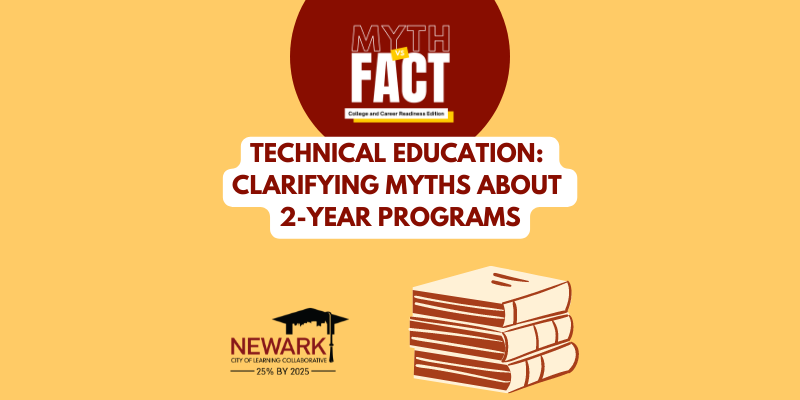
by Nasir Ismail | Mar 4, 2022 | Blog, Myth vs. Fact, Resources
What’s there to do after high school?
Many people believe that the only option to ensure a secure, financially independent future is by completing a four-year Bachelor’s degree program. Not only is this false, but claims like these undermine the importance of vocational jobs and the credibility of associate’s degrees!
Myth:
Four-year college is the only type of secondary education that matters.
While colleges may provide you exposure to new ideas, paths, and schools of thought, if you believe your career won’t require a four-year degree, then pursue a credential in something else!
Fact:
There is real value in two-year degrees, credentials, and certificates! Transferring is not necessary for all students. (https://toandthrough.uchicago.edu/mythbusters)
For example, if you love to cut or style hair, it would be wise to enroll in a vocational barber program to obtain licensure, rather than a bachelor’s program in an unrelated field. That way, you can gain the credentials/license you’ll need to follow your passion and level-up your career! 📝
Trade school and 2-year programs often lead people who complete them to immediate employment after graduation. These programs often provide very specific job training, putting more weight on the practical aspects of education. The Bureau of Labor Statistics reports that Construction, Healthcare, and Personal Care will account for more than 30% of new jobs through 2022!
Furthermore, the US Department of Education reported that people with technical educations are more likely to be employed, and significantly more likely to be working in their desired fields than their academic counterparts.
So if a quick route to a practical, well-paying job is what you’re looking for, or if you’re passionate about a certain skill that you have that you’d like to develop and use to earn a living, then a two-year program is the right one for you!
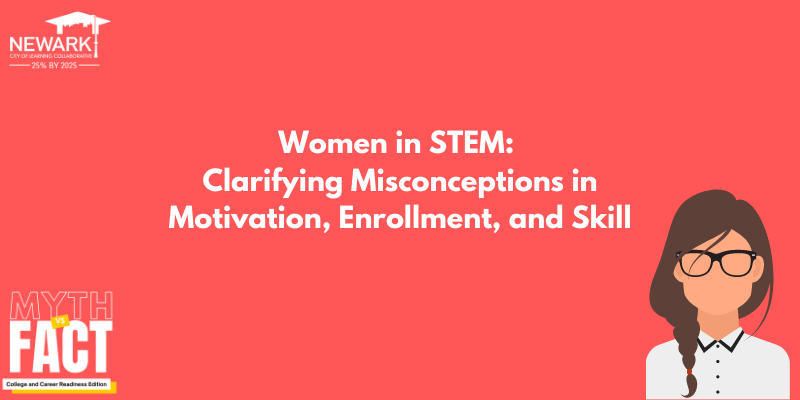
by Nasir Ismail | Mar 4, 2022 | Blog, Myth vs. Fact, Resources
Understanding Equal Opportunity for Women
Historical attitudes in the United States have unfortunately served to spread false gender stereotypes. Gender stereotypes negatively impact the opportunities of our country’s women. These attitudes lead people to believe that women can not accomplish the same things that men can–and that is simply not true.
The modern exploration of gender expression has been restructuring the social attitudes that limited women’s lives for generations. Attitudes claiming that “women aren’t as smart as men,” or anything along the lines of women being unequal to men, are entirely inaccurate. They stem from outdated, prejudiced social norms that male-dominant (patriarchal) societies carried through history.
Children as young as six years old tend to show signs of internalized stereotypes. That means: a six-year-old girl might already believe, for example, that she has to be a nurse because society made her believe only boys can be doctors. This only limits the child’s potential!
Myth vs. Fact
A contemporary stereotype that limits opportunities for Women in the US is the misguided belief that women aren’t as good as men in STEM fields. Science, Technology, Engineering, and Math are the component fields of study for these disciplines. The following examples will serve to show why that stereotype is not true.
People use backwards reasoning to justify attitudes against women. For example, the myth, “there are no women working in STEM” is a meritless claim.
More than 50% of researchers in Bulgaria, Latvia, and Lithuania, and above 40% of researchers in Latin America and the Caribbean are women! This is more evidence to show that many stereotypes involving women are unfounded claims.
People think men are simply better, perhaps by nature, than women in studying and understanding Science and Math. Also, recent studies show that girls often score as well or better than young boys on public school science and math tests.
People also believe the absurd viewpoint that women might not be as interested in the fields as men are, and this serves to gaslight women. Women and men are both extremely capable categories of humans, with about the exact same potentials in life. Society, however, has expressed biases–implicit and explicit–that can make women believe they are less capable. Due to classroom gender bias, teachers tend to put more faith in boys than they do in girls, especially in STEM subjects. Parents also put more pressure on sons than they do daughters to study STEM fields. So it is certainly not that women are less capable, it’s just that some groups of people have the misguided notion that women are lesser, and due to their influence, some people listen and perpetuate these falsehoods.
Conclusion
Shifting the societal narrative about equal opportunity can assist in building confidence in younger girls, so that from youth, they will never have to doubt themselves. Furthermore, they can build the resilience to never regard the false claims of backward-thinkers who want to limit their growth.
Also important to note is that not only men perpetuate these stereotypes. Women do too, and oftentimes nobody realizes that they spread these stereotypes. This shows how many of these attitudes come from implicit biases. Society has evolved in a way that economic policy dictates culture and indoctrinates everyone into the same system of beliefs and implicit attitudes, which is why people can self-discriminate and hold cultural biases.

by Nasir Ismail | Feb 17, 2022 | Blog, Myth vs. Fact, Resources
There is so much stress involved in when to attend college. Society sometimes makes it seem like if you do not attend college directly after high school, then you missed your opportunity to go at all. This cannot be further from the truth!
Debunking the Myths
Sometimes, people simply are not prepared to make a multi-year commitment, especially at the ages of 17 to 18 years old, which is when most young adults begin to apply for college. And in other cases, perhaps life gets in the way. Regardless, there is so much pressure surrounding what to study, what profession your major might result in, and ensuring that you enjoy your college experience.
More commonly than not, people will misjudge themselves at these young ages, and may even end up changing their major multiple times, or simply taking longer than expected to finish their chosen program of study.
The more time someone spends away from an academic environment, the harder it might be to reacclimate to that environment. There are, however, so many benefits to having real-world, real-life experience when it comes to education.
The Facts
It’s certainly true, going back to college or enrolling as an adult might be challenging… But luckily, you’re far from being alone. Recent reports have shown that almost 40% of adults over the age of 22 are still students. Don’t let your age discourage you!
Furthermore, studies have shown that older adults have more patience, problem-solving skills, and motivation than younger adult students, due to a higher amount of life experience. Several adults find the difficulty of college to decrease as they get older. This also serves as a bonus for employers after college who see that you may already have professional experience in another field. So not only will you have a more interesting story, but you might even be able to get paid more or land a better job for it!
So if you’re an adult who may have missed out on your initial opportunity to go to college as a traditional student, or you’re a high school student who may not be ready to commit years to studying and learning, it’s never too late to apply and enroll in a program of your interest!






